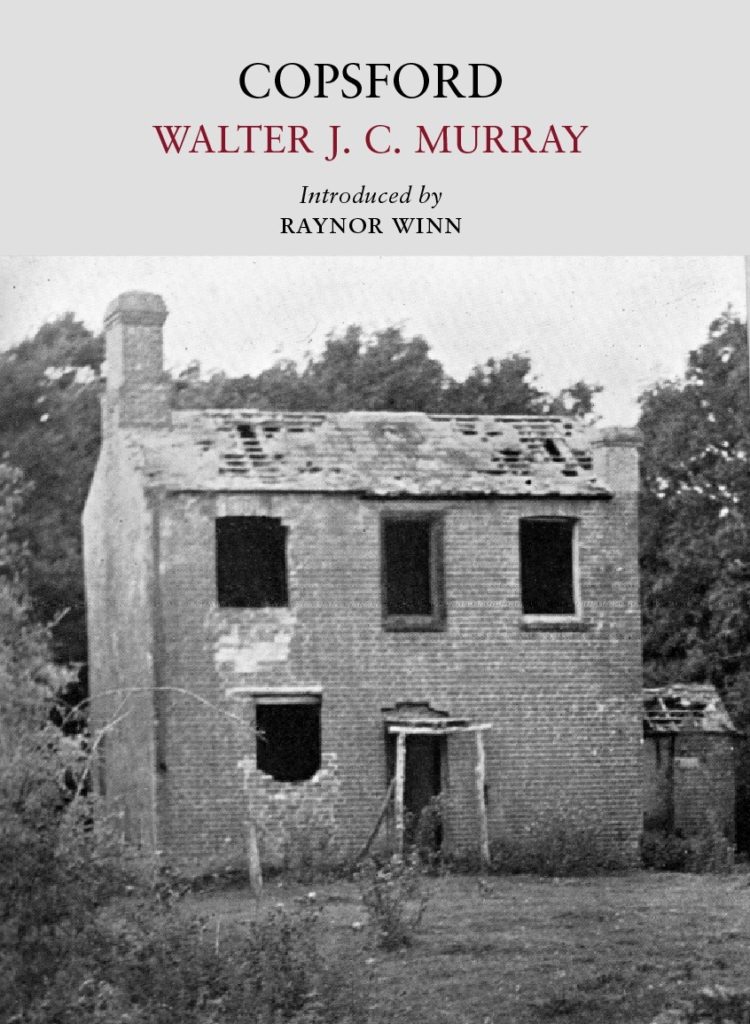Walter J. C. Murray’s Copsford – first published in 1948 – documents a year in which the author rented a derelict cottage in rural Sussex, and scratched a living from selling dried herbs and wildflowers. Now it’s reprinted in a new edition by Little Toller. Malcolm Anderson reviews.

Tiring of a modern life, Walter Murray turned his back on a journalism career in London and headed to a small run-down house named Copsford in the Sussex countryside. Driven by a desire to live a simpler life, more connected to the natural world, he planned to sell herbs collected from the land around him and to supplement this income with written observations from his self-enforced quiet solitude. A common tale perhaps, and something that many of us daydream about doing. Murray however wasn’t escaping modern day life; he took this leap in the early 1920’s after serving in the Merchant Navy and the RAF during the first world war, a flannelled forerunner of much modern day nature writing.
The book was written two decades after his experiences at Copsford and looks back over his time in the house, but it doesn’t do so through the rose-tinted spectacles of time. This is no glossy, darling buds-bucolic vision of rural life: more it is a thoroughly English Thoreau, and in Copsford Murray found his hut, his very own Sussex Walden.
I’ve spent my whole life around old houses. As a child, dad did them up while we lived in window and carpet-less rooms; as an adult I work with listed buildings almost every day and currently live in a house with barely any heating and no real road or neighbours. Indeed, I like to feel that I’m fairly comfortable with a certain amount of the privation that comes with living in old houses cut off from what many think of as civilisation. However, when I opened the envelope that arrived on my door and got a first glimpse of Copsford on the front cover, I have to admit to feeling a little shudder at the crumbling mess of a building that stared forlornly back at me.
The feeling I took from the photo, one of irrational unease, is to my surprise mirrored in the early chapters by Murray with his first steps into the house where he writes:
“When at last I stood before the house I could not at first find courage to push the blistered door and write my name on this forgotten page of life. The loneliness of the place repelled me, repelled me forcibly, and I would have left it gladly in peace and for ever had I not needed just such a place.”
Luckily for us, Murray found the nerve to face down the ghosts of Copsford and continues on to detail the time he spent there.
From the first meeting with the farmer ploughing the fields with a team of horses to the language used throughout, this is a book that beautifully ties you to a point in history, and specifically to a sort of British countryside that has to a large extent disappeared.
Although undoubtedly suffering from the hardship of living in something that couldn’t even generously be called a fixer-upper, surviving on a National Trust-worthy diet of bread, butter, tea and cake, there is a joy in every minute of the book; an enthusiasm for the details of the world that Murray has thrown himself into. It’s this joy, this love of the English landscape that pervades every bit of the book and pulls you into Copsford with him. From details of the herbs collected, and how he stores them, to battles with rats and blackberry scrumpers, I devoured every chapter.
Some books you enjoy; some you connect with on a very personal level. Copsford, and Murray’s delight at the tougher life he finds there, had me caught from very beginning. Although ostensibly about isolation, nature and hardship, for me the thing that shines through from the outset is the hints at the importance of human contact that we all, even if we deny it, need.
Here, in Copsford, Murray has eloquently and beautifully exposed the soul of escaping to the English Countryside, warts and all. This, to my mind, is an almost perfect account of the yearning, search and realisation of a desire that many of us feel but never have the courage to follow. One thing however, I’m pleased that I didn’t get to read this before 2019. I’m honestly not sure that if I’d read this earlier in my life I would have ever had the courage to write about my time in Drove Cottage – as nothing I could have written about my experiences could better this.
*
‘Copsford’ is out now and available here, priced £12.00